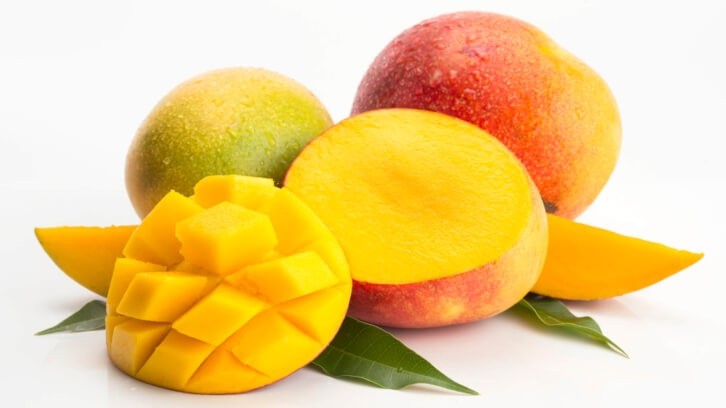Mango linked to higher nutrient intake in certain Americans

Using data from multiple cycles of the U.S. government-run NHANES What We Eat in America survey, researchers from Michigan-based consulting firm Nutrition Impact used a sample size of 16,774 women who were not pregnant or lactating and 18,784 adults over the age of 60.
Within each subgroup, the study compared nutrient and food group intake as well as diet quality between consumers and non-consumers of mango, a fruit known for its high fiber, calcium, magnesium, potassium, folate and vitamin C content.
Published in the journal Nutrients, the observational research was funded by the National Mango Board.
A life-stage approach
The study noted that the life-stage approach introduced by the Dietary Guidelines for Americans (DGA) in the 2020-2025 cycle recognizes nutritional equity as a priority in nutrition research to adjust dietary pattern recommendations for subpopulations. Two of these are pregnant and lactating females (PLFs) and older adults due to their unique nutritional needs and chronic health conditions.
The DGA encourages PLFs to increase consumption of iron, folate, calcium, magnesium, protein, fiber, potassium and vitamin D since current intakes among women between the ages of 19 to 50 years are low, and more than 20% of the population is below the estimated average requirement for calcium, magnesium and vitamin D. For older adults, over 25% of those 71 and older fall short for calcium, magnesium, zinc and vitamins A, C, D and E, according the NHANES data.
“Both groups have low intakes of several nutrients, including those of public health concern, and suboptimal diet quality, underlining the importance to improve their dietary intakes,” the researchers wrote. “Incorporating fruit into their diets could help alleviate these gaps.”
While they acknowledged that women of childbearing age (WCA) are not equivalent to PLFs, this proxy was used to expand the limited sample size of PLFs in NHANES.
Alleviating the gaps
The analysis of the data showed that both WCA and older adult mango consumers had over 20% higher intakes of fiber and vitamin C, and WCA consumers had over 10% greater folate, magnesium and potassium intakes compared to the non-mango consumers.
Both mango-consuming subgroups also had lower intake of saturated fat, and older adults had lower intakes of protein and vitamin B12. Diet quality was 16% higher in WCA and 13% higher in older adults compared with non-consumers. In addition, mango consumers in both subgroups had lower beef, poultry, fish and solid fat intakes, and WCA consumers had higher whole grain intakes compared with non-consumers.
“[B]oth WCA and older adults who consumed mangos had higher intakes of nutrients important in those life stages, in addition to higher diet quality and diet quality components,” the study concluded. “Identifying individual fruits that help to ward off common health conditions in WCA could give multiple options for this subpopulation who are prone to food aversions.”
They also reported that older adults who consumed mangos had lower intake of protein, vitamin B12, riboflavin and niacin, as well as lower intakes of protein foods —suggesting that improving protein intake of older adults while increasing fruit intake could decrease potential risk of malnutrition and prevent chronic health conditions.
“Future research could focus on examining the nutrient intake benefits of mango and individual fruits independent of dietary supplement usage in PLC and older adults,” the study noted, adding that analysis stratified by demographic variables could also be important for future study.
Source: Nutrients
doi: 10.3390/nu16020303
“Mango Consumption Was Associated with Higher Nutrient Intake and Diet Quality in Women of Childbearing Age and Older Adults”
Authors: Kristin Fulgoni and Victor L. Fulgoni III














